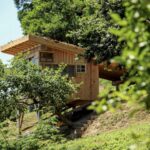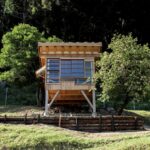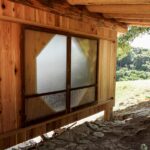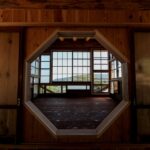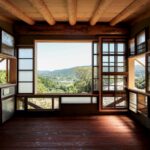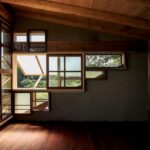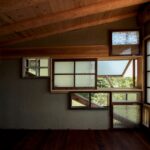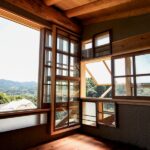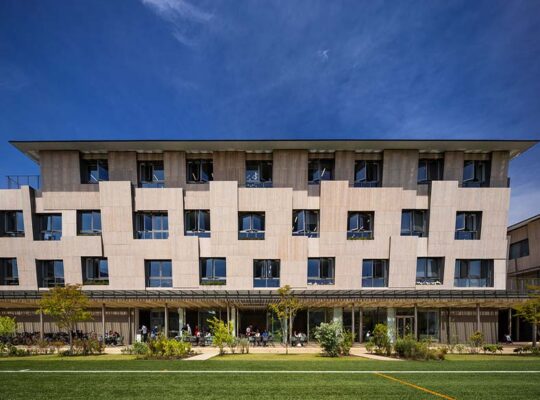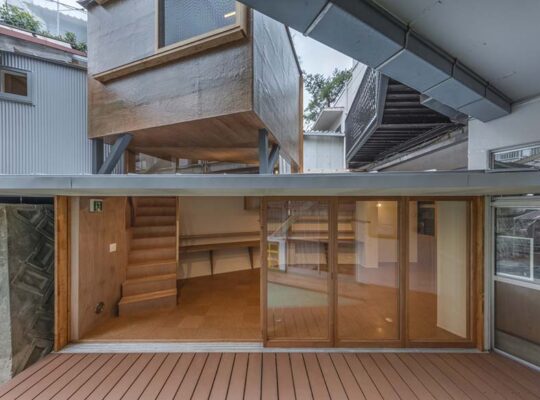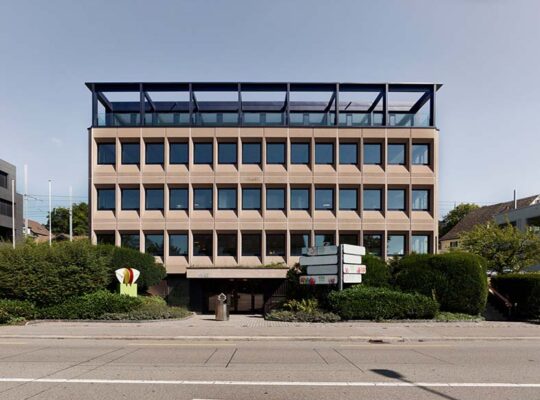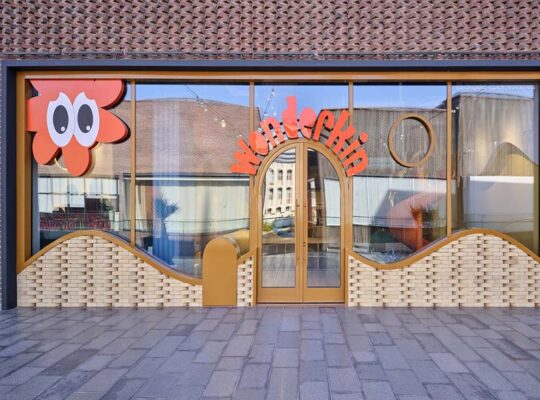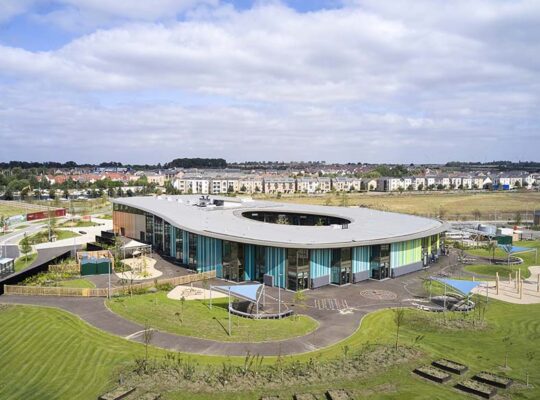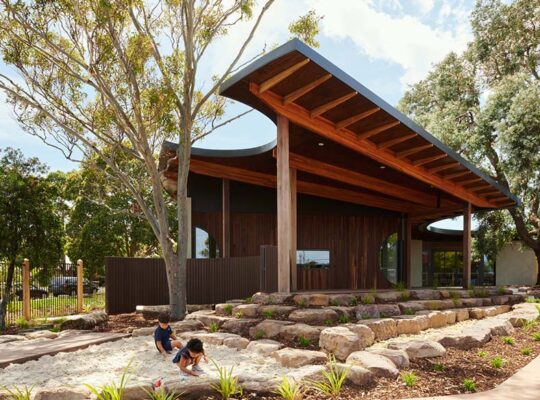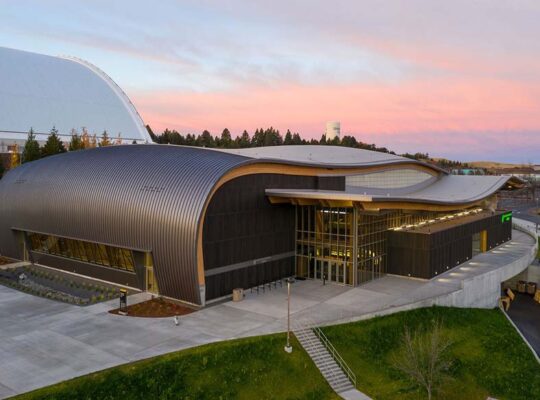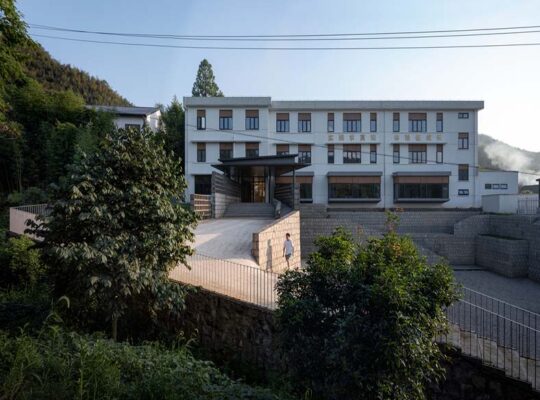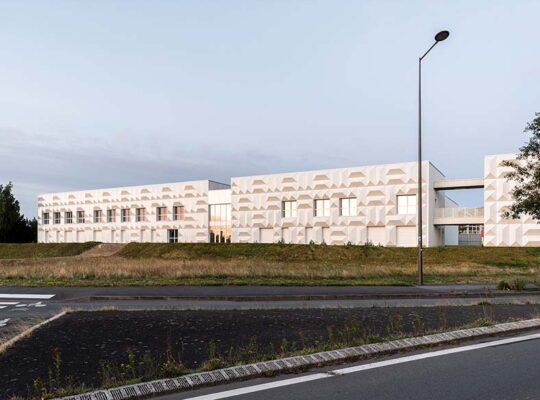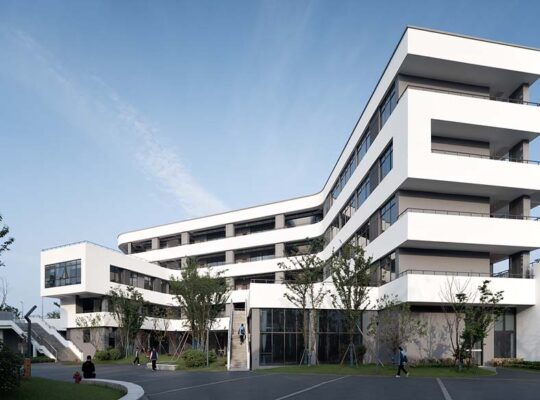Conceptualization
Inspired by the perpetual cycle of water in nature, the TEKITEKI-AN architecture embodies the essence of ‘drop by drop’ within a traditional Japanese small house. Located in the Satoyama village of Kamanuma, the house is nestled amidst farmlands and mountain forests, reflecting the sustainable ethos of its surroundings.
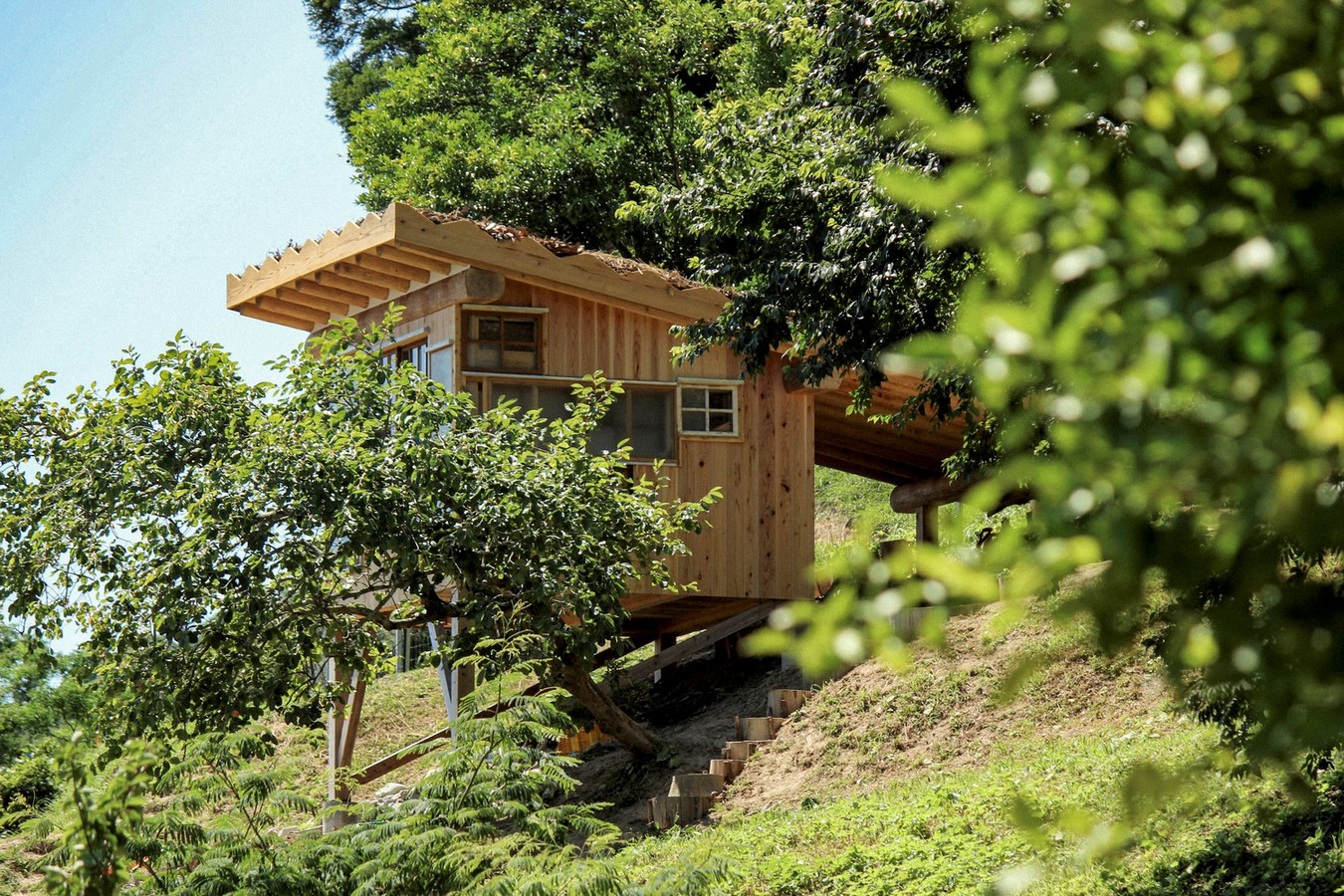
Contextual Setting
Kamanuma, situated a two-hour drive from Tokyo, epitomizes the Satoyama lifestyle—a harmonious coexistence between humans and nature. With an aging population posing challenges to sustainability, initiatives like ‘Small Earth’ promote urban-rural exchanges to preserve and nurture the environment. In this context, 6lines studio undertook the task of designing and constructing TEKITEKI-AN as part of efforts to revitalize the village.
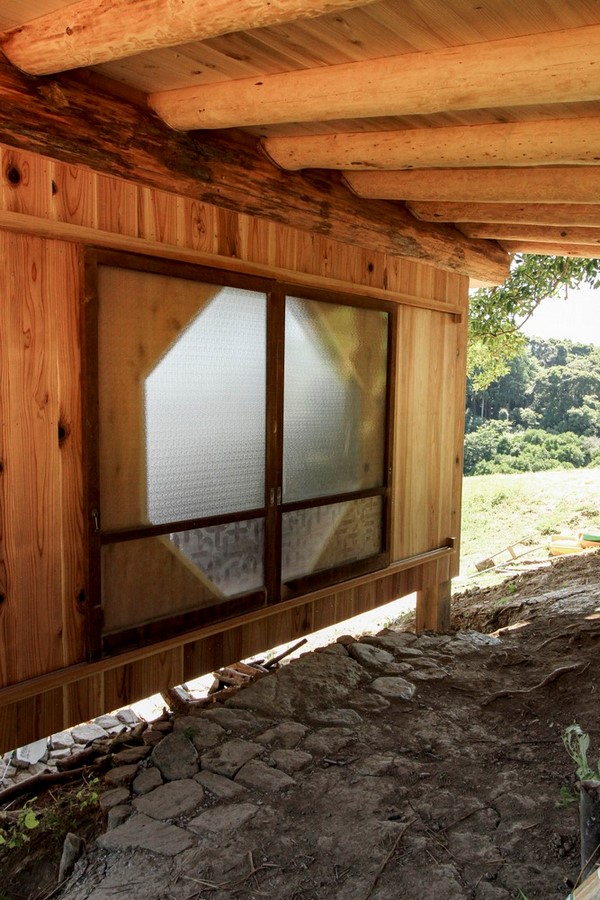
Architectural Features
The tiny house, integrated seamlessly into the sloping terrain, boasts a grass-covered roof accessible via a slope, offering panoramic views of the village and sea. Old windows sourced from demolished houses adorn the facade, creating a patchwork of light and shadow that tells the story of the village’s history.
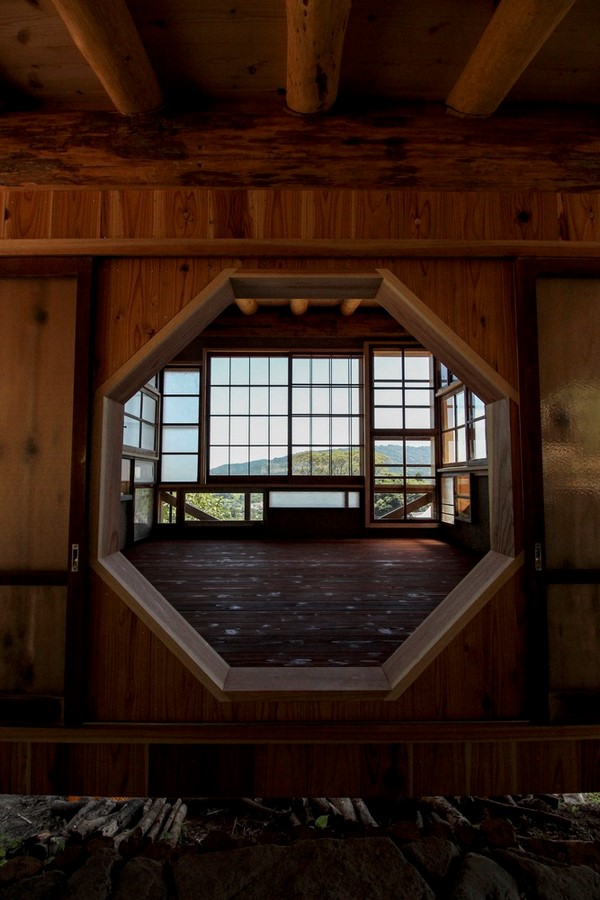
Construction Process
Constructed over six months without outsourcing, the project relied on local craftsmanship and community involvement. Guided by a local carpenter and masonry practitioner, along with contributions from students of the Tokyo Institute of Technology, the construction process showcased a sustainable approach. Resources obtained from daily petit works were repurposed into building materials, enriching the beauty of Satoyama.
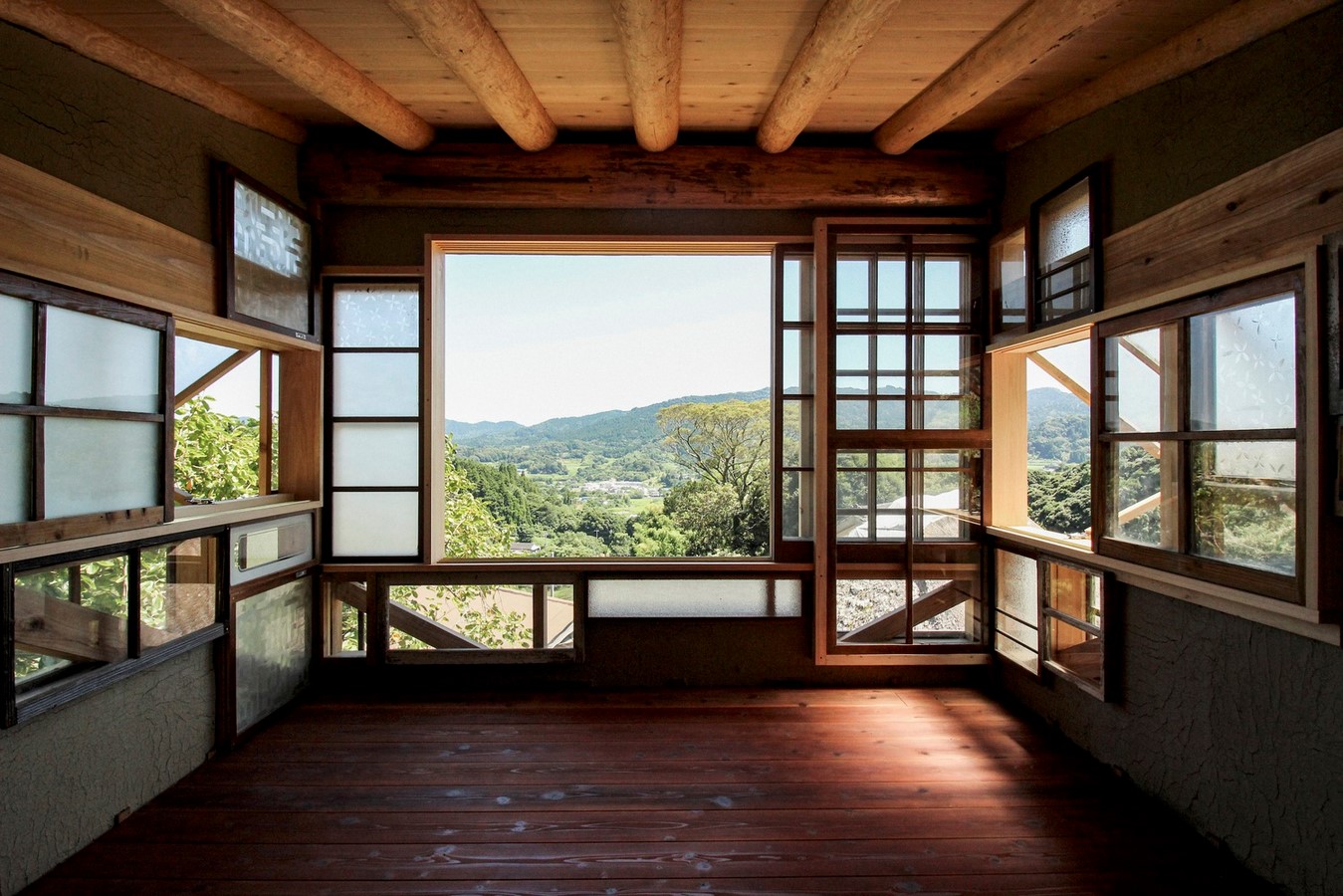
Sustainable Design
TEKITEKI-AN embodies sustainability at its core. Natural materials such as soil, tree branches, bamboo, and smoked rice husks were utilized in construction, ensuring minimal environmental impact. With a compact 3m x 3m square plan reminiscent of a traditional tea house, the tiny house serves as a versatile space for relaxation, work, and dining, seamlessly integrating into the larger Satoyama ecosystem.
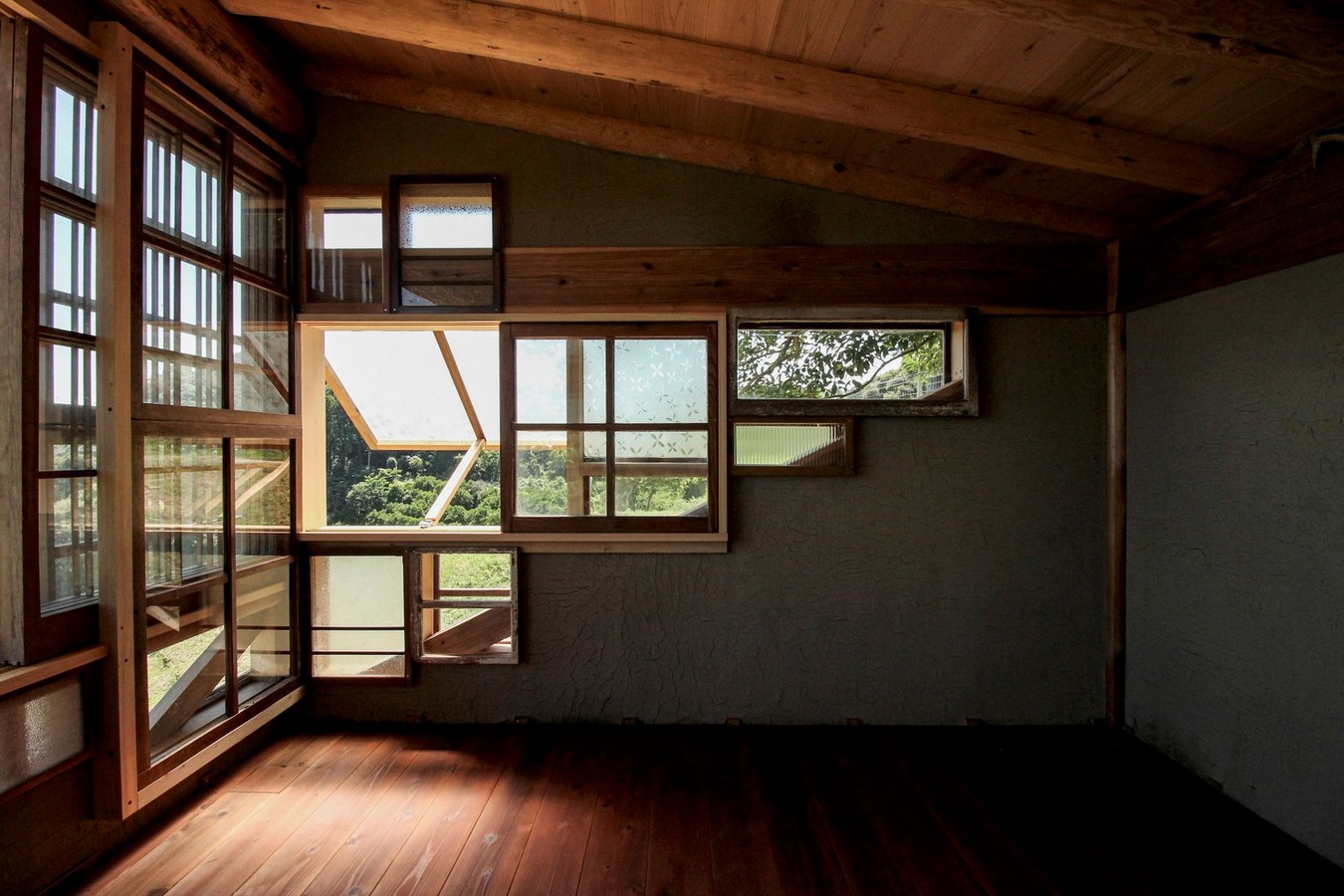
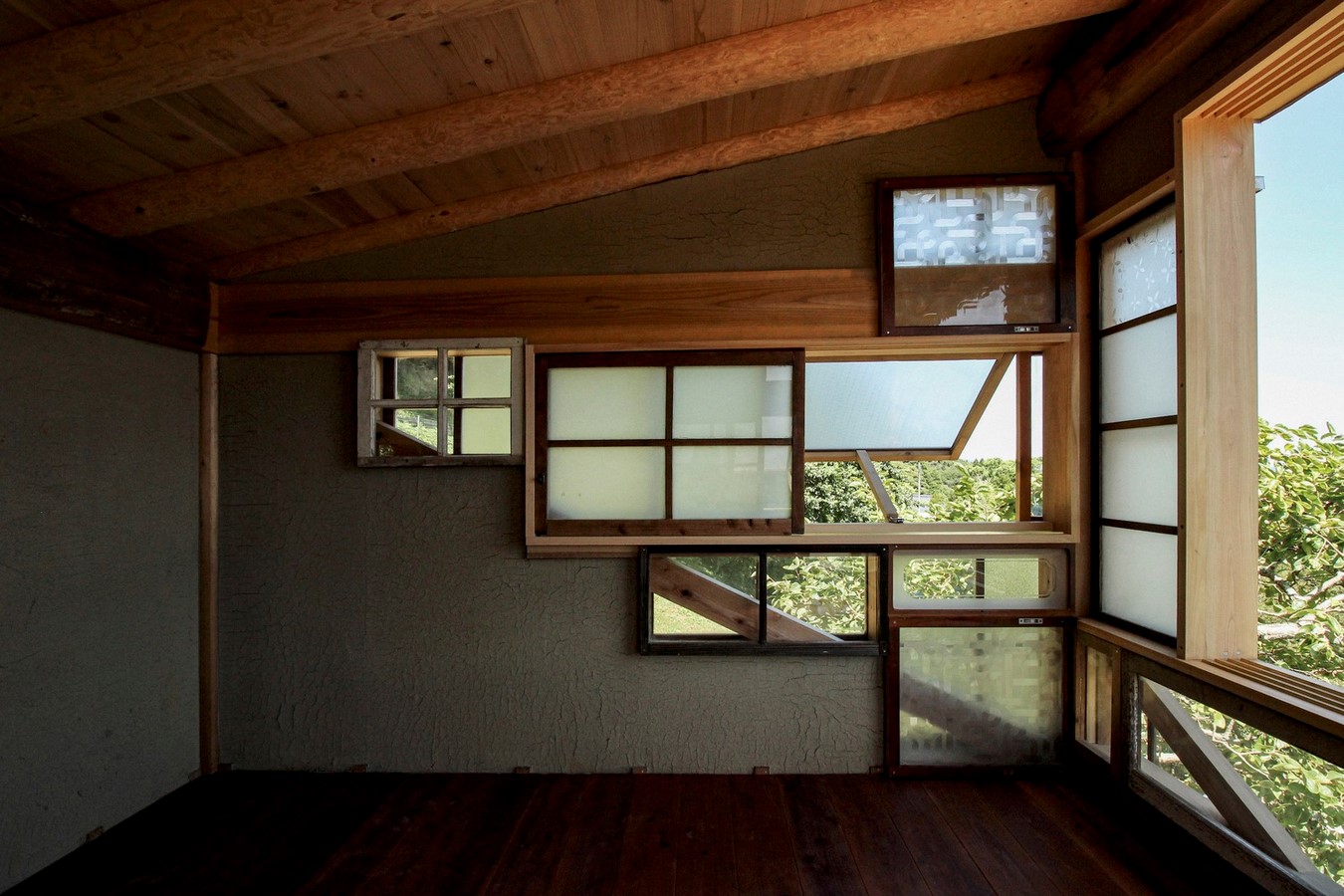
Conclusion
Tiny House TEKITEKI-AN stands as a testament to the harmonious relationship between architecture and nature. Rooted in the principles of sustainability and community collaboration, it serves as a beacon of hope for the preservation and revitalization of Satoyama villages, ensuring a sustainable future for generations to come.

